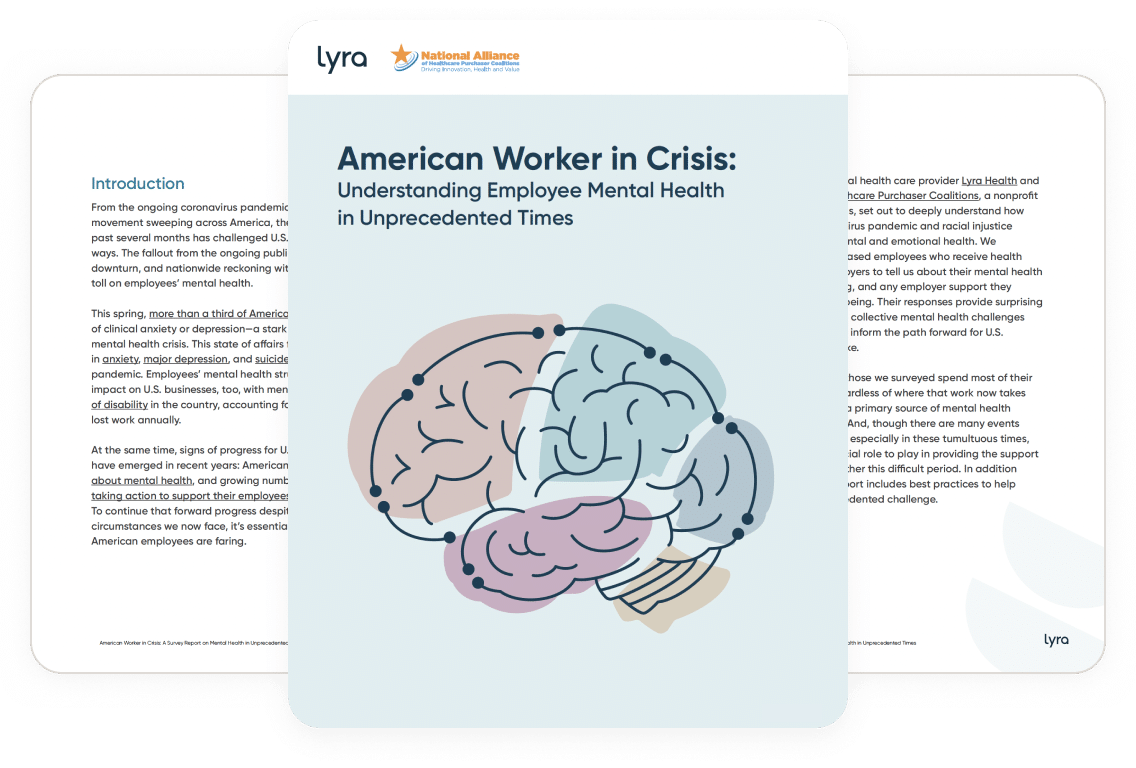Understanding Employee Mental Health in Unprecedented Times
We hope that this survey report provides valuable insights into the mental health challenges employees are facing amid these unprecedented times as well as steps employers can take to provide much-needed support to their workforce.

Report
About the Report:
From the ongoing coronavirus pandemic to the racial justice movement sweeping across America, the uncertainty and upheaval of the past several months has challenged American workers in unparalleled ways. Lyra Health, in partnership with the National Alliance of Healthcare Purchaser Coalitions, wanted to better understand how the public health crisis, economic downturn, and nationwide reckoning with racism is affecting employees’ mental health. To accomplish this, we surveyed more than 1,200 full-time U.S. employees about the symptoms they’re experiencing, how they’re coping, and any support they’re receiving from their employers for their mental health.
The results were striking, and revealed that:
- Over 80% of workers report that recent events have negatively impacted their mental health
- 65% say it’s affecting their ability to work
- Just 14% of those in distress have sought mental health care, and most are paying for this treatment out of pocket
- Workers who feel unsupported by their employer are twice as likely to be considering a career change